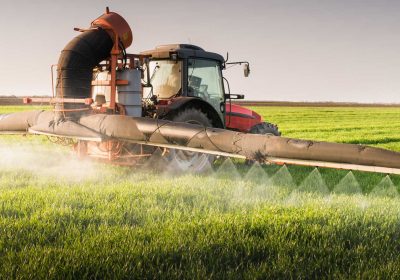…the next frankenfood, coming to a store near you! Action Alert!
Listen to the audio version of this article:
THE TOPLINE
- A new genetically engineered (GE) food is on the way; this time, it’s a soybean that produces pork proteins.
- Proponents are trotting out the same old arguments, saying that this product will help us combat climate change—even though many fake foods like this are not as environmentally friendly as they’re made out to be.
- This is another reason we have to fight the idea that fake foods can be biologically equivalent to their natural counterparts.
Moolec Science recently received a USDA approval to grow its GE soybean, Piggy Sooy. The GE bean contains up to 26.6 percent pork protein, and the company is now working with the FDA to gain approval for their product as a food as they move towards making the GE soybean commercially available.
In the press release announcing the approval, the company’s CEO states, “We are unlocking the power of plants by leveraging science to overcome climate change and global food security concerns.”
As we’ve reported before, this is a familiar refrain among the proselytizers of fake food, likely in an attempt to get us to forget that what we’re eating are frankenfoods that have not been adequately tested for safety. But the argument that lab-grown foods are better for the environment is dubious at best. Usually, these claims are based on a determination of which foods deliver the most protein for the least C02, but products like the Impossible Burger are based on ingredients that are fossil-fuel intensive monocultures and heavily processed, all of which negatively impact human health and the environment.

Red meat and cattle farming has also become a punching bag for those who, like Bill Gates, want us to switch entirely to lab-grown meat. But this is a witch hunt. As Rob Verkerk, PhD, founder of ANH-International points out, some livestock farming systems, in particular those that are pasture-based, are already carbon net zero given the huge amount of carbon dioxide that can be taken up by rich, organic, microbial-rich soils.
These operations are worlds away from the concentrated animal feeding operations, or CAFOs, that are indeed responsible for greenhouse gas emissions. The point is, red meat isn’t the problem, the production system is.
The approval of a plant that produces animal protein is another chapter in what is fast becoming a dystopian horror story. We’re starting to see an avalanche of foods produced through synthetic biology. Remember our coverage of “Bored Cow” milk, which is produced by inserting the gene for whey protein into a GE yeast and then fermenting it, adding some ingredients at the end to get the concoction to look, taste, and feel like milk when it isn’t.
These foods are being approved under a broken regulatory regime that essentially disregards the process by which a food is created and is only concerned with the finished product. The FDA has made clear it believes that gene editing and similar techniques can be used to produce foods that, in its limited view, are identical to traditionally-produced foods. This is a pipe dream, particularly in light of recent research into all that we don’t know about even the simplest traditional foods.
We disrespect the complexity of natural systems when we think that we can tinker with this or that gene, or ferment foods from GMO yeast, or grow cells in a big vat, or engineer a soy plant to make pig proteins, and achieve what Nature did over eons. To call these foods “bioequivalent” and ready for market without a deeper understanding of what they’re made of and what it means for human health to eat them is utter lunacy—and a recipe for disaster.
Action Alert! Write to Congress and the FDA, telling them that we need more testing of gene-edited foods that research is increasingly finding are not bioequivalent to traditional foods. Please send your message immediately.





pig & veggie crossed = pig weed!